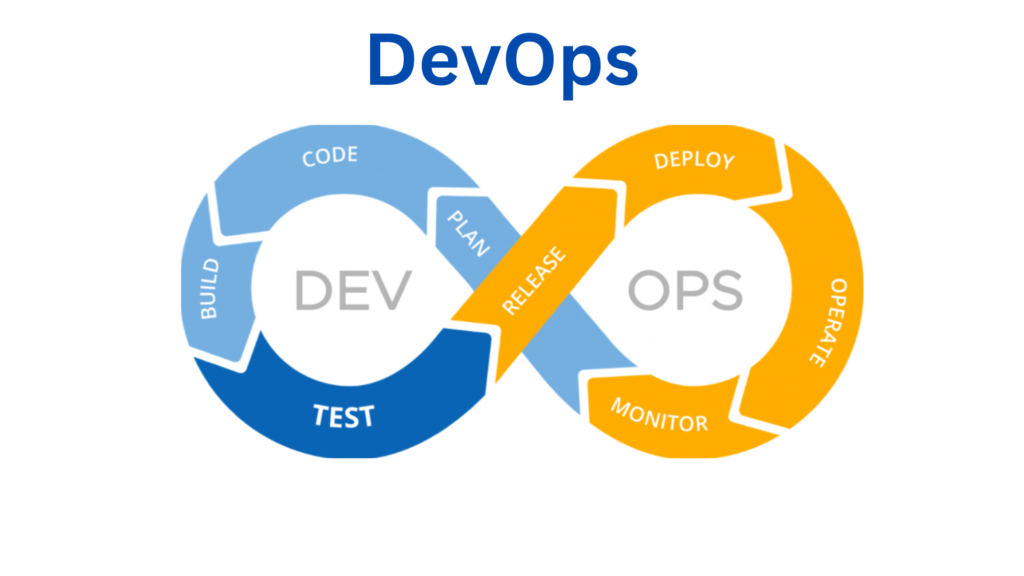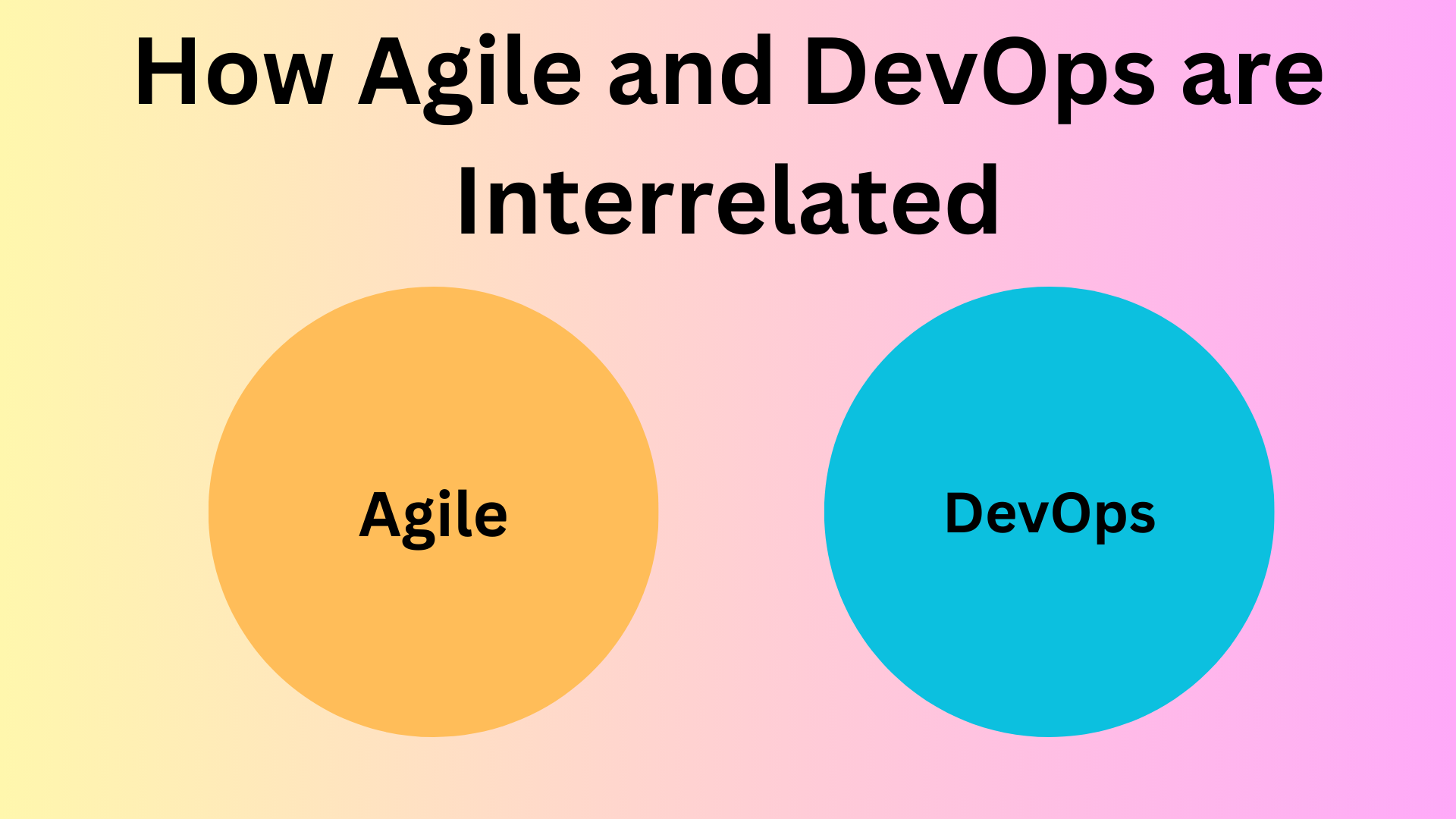Introduction
In the field of software development, two methodologies have become increasingly important over the years: Agile and DevOps. While they are often discussed separately, their interrelation is profound and pivotal in shaping modern software development practices. In this comprehensive guide, we’ll delve into the symbiotic relationship between Agile and DevOps, exploring their similarities, differences, and how they collaborate to drive efficiency, quality, and innovation in software development.
Table of Contents
Understanding Agile and DevOps
Agile Methodology
Agile methodology is an iterative approach to software development that prioritizes adaptability, collaboration, and customer feedback. It emphasizes breaking down projects into small, manageable tasks called iterations or sprints, allowing teams to respond to changing requirements swiftly. Key principles of Agile include customer satisfaction, continuous delivery, and embracing change.

DevOps Culture
DevOps, on the other hand, is a cultural and philosophical movement that advocates for collaboration and integration between development and operations teams. It aims to automate the software delivery process, streamline communication, and foster a culture of shared responsibility. DevOps practices encompass non-stop integration, non-stop delivery, and infrastructure as code.

The Synergy Between Agile and DevOps
While Agile and DevOps originated from different domains, they share fundamental principles that make them highly complementary:
Iterative Development
Both Agile and DevOps promote iterative development methodologies. Agile breaks down projects into manageable iterations, while DevOps facilitates continuous integration and delivery (CI/CD), enabling rapid and frequent releases. By integrating Agile’s iterative approach with DevOps’ automation and deployment capabilities, teams can deliver high-quality software at a faster pace.
Collaboration and Communication
Agile emphasizes collaboration among cross-functional teams, including developers, testers, and business stakeholders. Similarly, DevOps fosters collaboration between development, operations, and quality assurance teams to streamline the software delivery pipeline. By aligning their workflows and communication channels, Agile and DevOps enable seamless collaboration across the entire software development lifecycle.
Feedback Loop
Both methodologies prioritize feedback loops to drive continuous improvement. Agile encourages regular feedback from customers and stakeholders through demos and reviews during each iteration. DevOps extends this feedback loop by gathering insights from monitoring and telemetry tools deployed in production environments. By leveraging feedback from both development and operations stages, teams can identify issues early and iterate on solutions efficiently.
Implementing Agile and DevOps Practices
Agile Practices
- Scrum: A framework for Agile project management, involving iterative development, daily stand-up meetings, and sprint retrospectives.
- Kanban: A visual management method that focuses on workflow optimization, limiting work in progress, and continuous delivery.
- Lean Software Development: A set of principles derived from lean manufacturing, emphasizing waste reduction, value stream mapping, and continuous improvement.
DevOps Practices
- Continuous Integration (CI): Automating the process of integrating code changes into a shared repository multiple times a day.
- Continuous Delivery (CD): Automating the process of deploying code changes to production environments, ensuring reliable and frequent releases.
- Infrastructure as Code (IaC): Managing and provisioning infrastructure through code, enabling consistency, scalability, and version control.
The Business Impact of Agile and DevOps Integration
Faster Time-to-Market
By combining Agile’s iterative development with DevOps’ automation capabilities, organizations can accelerate their time-to-market significantly. Rapid iterations, automated testing, and continuous delivery enable businesses to respond swiftly to market demands and gain a competitive edge.
Improved Quality and Reliability
The collaboration between Agile and DevOps leads to enhanced quality and reliability of software products. Continuous integration, automated testing, and proactive monitoring reduce the likelihood of defects and performance issues, ensuring a seamless user experience.
Enhanced Flexibility and Adaptability
Agile and DevOps promote flexibility and adaptability in response to changing requirements and market dynamics. By fostering a culture of experimentation, innovation, and continuous improvement, organizations can pivot quickly and seize new opportunities.
Difference Box: Agile vs. DevOps
| Aspect | Agile | DevOps |
|---|---|---|
| Focus | Software development | Collaboration between development & operations |
| Methodologies | Scrum, Kanban, Lean | CI/CD, IaC |
| Key Principles | Iterative development, Customer feedback | Automation, Collaboration, Continuous delivery |
| Team Structure | Cross-functional teams | Cross-functional teams, including operations |
| Feedback Loop | Customer feedback during iterations | Monitoring and telemetry in production |
| Delivery Speed | Iterative releases | Continuous deployment |
Incorporating Agile and DevOps practices can transform your organization’s software development processes, driving efficiency, innovation, and business growth. Embrace the synergy between Agile and DevOps, and embark on a journey towards excellence in software delivery.
Conclusion
In conclusion, Agile and DevOps are not just compatible but highly interrelated methodologies that together form the foundation of modern software development practices. By integrating Agile’s iterative approach with DevOps’ automation and collaboration principles, organizations can achieve faster delivery, higher quality, and greater business agility. Embracing the synergy between Agile and DevOps is essential for staying competitive in today’s fast-paced digital landscape.
Incorporating the principles and practices discussed in this guide can help organizations unleash the full potential of Agile and DevOps, driving innovation, efficiency, and value creation across the software development lifecycle.
Remember, the journey towards Agile-DevOps integration is ongoing and requires commitment, collaboration, and continuous improvement. Embrace the synergy, empower your teams, and embark on a transformative journey towards excellence in software development.



